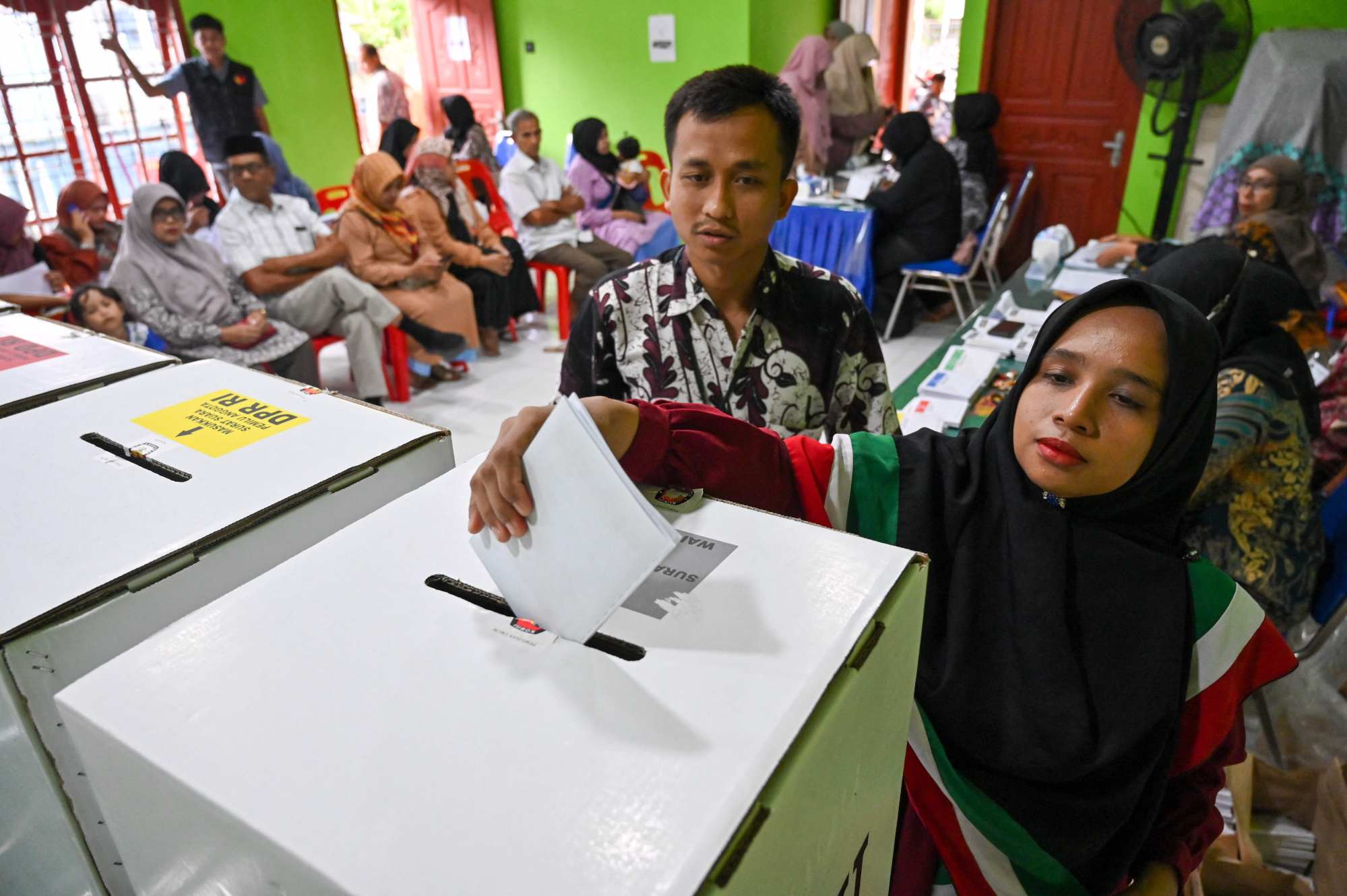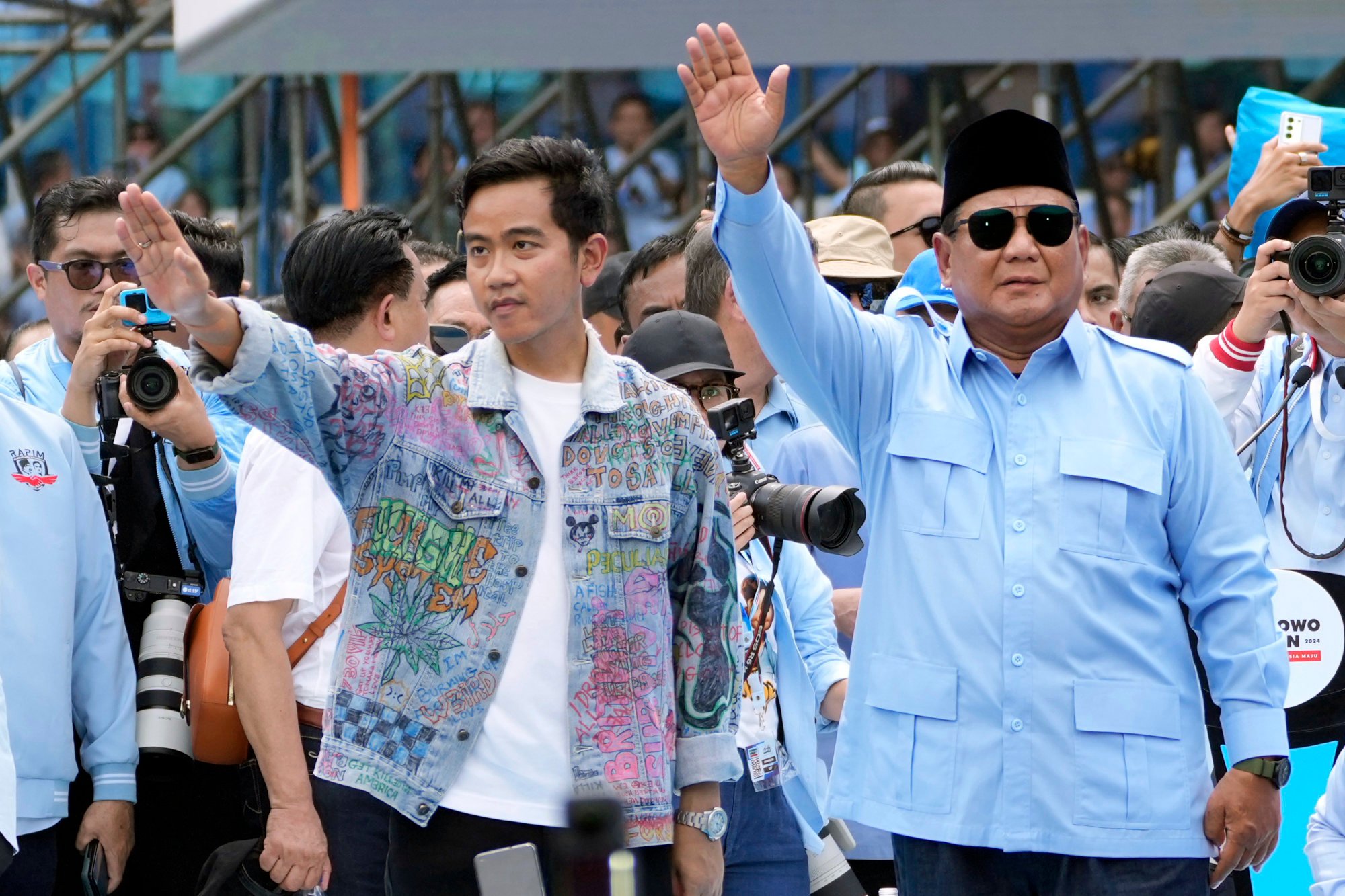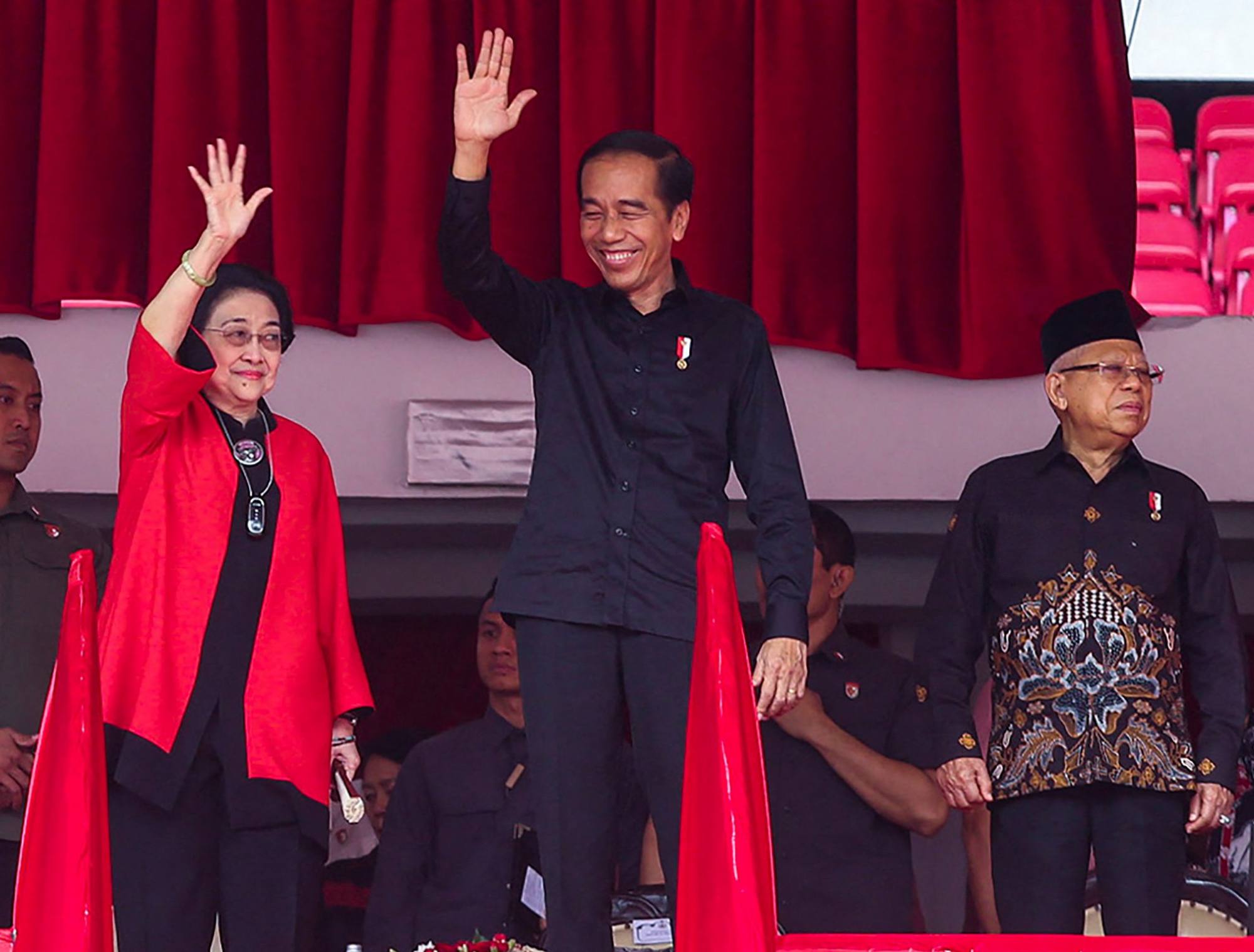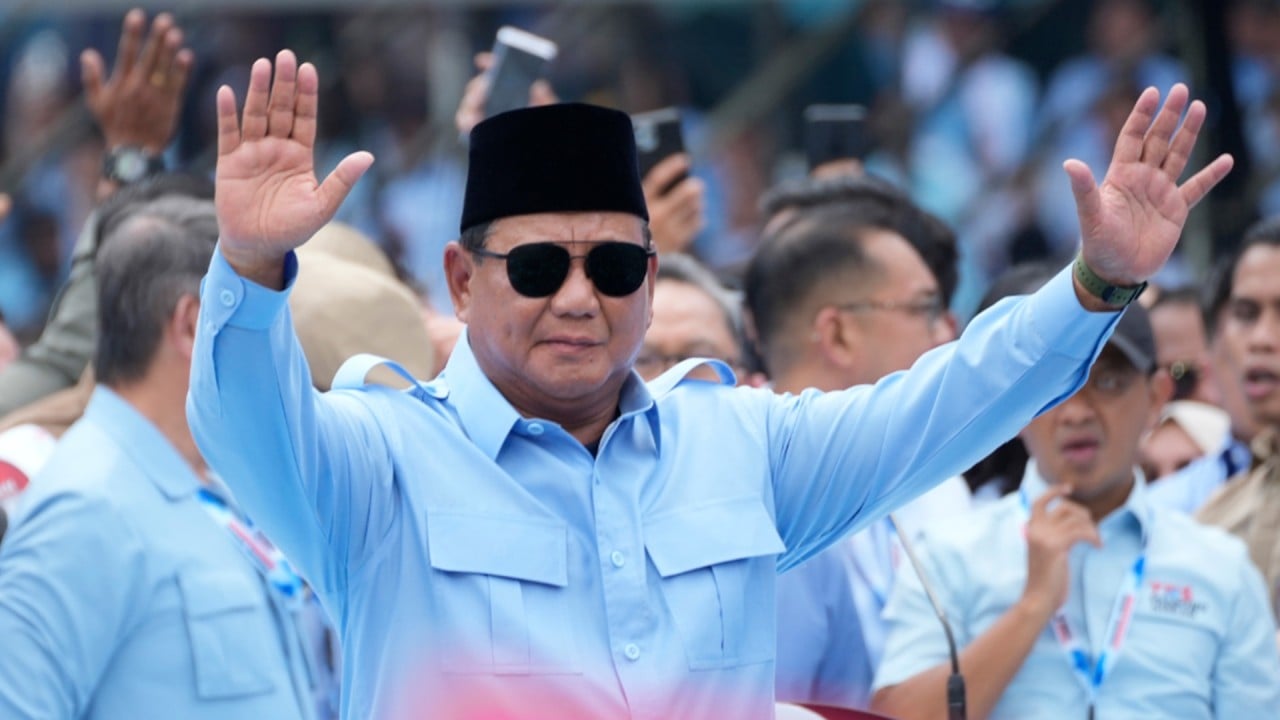
Indonesia’s ruling PDI-P could take on opposition role in Prabowo’s government as it ‘keeps options open’
- PDI-P chief Megawati has slammed the administration of outgoing President Joko Widodo and ‘widespread’ fraud during February’s presidential election
- Analysts say PDI-P is monitoring the situation to gauge how many parties would join the new governing coalition and Widodo’s influence in Prabowo’s team
The ruling Indonesian Democratic Party of Struggle (PDI-P) has signalled it could take on an opposition role when president-elect Prabowo Subianto’s government takes power in October, but the party is taking a wait-and-see approach to “keep its options open”, analysts say.
All eyes were on PDI-P chairwoman Megawati Sukarnoputri this past weekend as her party held its annual leadership meeting, where she was widely expected to announce her stance towards Prabowo.
However, the influential chairwoman – a former president herself – appears to want to hold her cards close to her chest for the time being, refraining from declaring her party’s position.
But her speech – in which she strongly criticised the administration of outgoing President Joko Widodo and the lack of democratic safeguards during February’s presidential election – indicated that the PDI-P could take on an opposition role.

Megawati claimed that there was “widespread, systematic and structured” fraud which tarnished the election, mirroring the views of Prabowo’s opponents and pro-democracy activists in the country.
“I’m saddened because I was president when the country’s first direct election took place. It was responsible and successful. Why is it that the election has now become grey and has been engineered?” Megawati said during her opening speech on Friday.
The PDI-P was the biggest victor of February’s legislative election, with 16.72 per cent of the vote and winning 110 out of 580 seats in the House of Representatives.
However, its presidential candidate, Ganjar Pranowo, suffered a harsh defeat, finishing with the fewest votes of the three contenders.
Ganjar’s loss has been largely attributed to a lack of support from incumbent Widodo, who had been a member of the PDI-P for the past two decades, using the party as a political vehicle as he rose from mayor of Solo to governor of Jakarta to the presidency.

While Widodo’s relationship with Prabowo could hinder the PDI-P’s standing with the new government, analysts say the party is not ready to rule anything out yet.
“I think Megawati’s statement indicates that at this time the PDI-P prefers to keep its options open and still explore a potential deal with Prabowo’s team,” said Alexander Arifianto, a senior fellow with the Indonesia programme at S Rajaratnam School of International Studies in Singapore.
Megawati said during the leadership meeting that it would be “presumptuous” to expect an announcement on PDI-P’s position now.
“At this current moment as I speak, I would still have to calculate the political risks,” she said. “Of course I am going to play around [with my options] a little bit.”
While she acknowledged that many had expected her to give a definitive answer on PDI-P’s position under Prabowo’s administration, she said her party would steadfastly remain a guardian of democracy regardless of the ultimate decision.
Bargaining power
Prabowo has been courting rival parties in hopes of expanding his political coalition and gaining a legislative majority. So far, two of the three parties that supported rival candidate Anies Baswedan – the National Democratic Party and the National Awakening – announced they would align with Prabowo’s coalition.
His own coalition consists of four parties that cumulatively won around 48.27 per cent of the vote during the legislative election. As of now, he is set to command at least 280 of the 580 seats in Indonesia’s parliament.
The PDI-P and the Prosperous Justice Party – which won an estimated 53 seats – are the two remaining parties that have yet to announce their positions under Prabowo’s government.
According to Wasisto Raharjo Jati, a political analyst with the Jakarta-based National Research and Innovation Agency, the PDI-P is choosing to “monitor the situation” to see the number of parties that end up supporting the Prabowo-Gibran administration.
“[Megawati’s] concern is that if the PDI-P stands alone as the single opposition party in parliament, it will not be enough to control the governing coalition,” he said. “So PDI-P will still be careful before deciding its stance.”

Political analyst Arifianto said Megawati could also be biding her time to gauge how much sway Widodo maintained within Prabowo’s cabinet.
“[PDI-P] also wants to see who else will be part of the cabinet, which indicates they want to know how much influence Jokowi will have in the new cabinet,” he said, referring to Widodo by his popular nickname. “If he still has a lot of influence in determining the cabinet make-up, I suppose this means the PDI-P will likely be in the opposition rather than joining in.”
Also on the party’s radar are the local executive elections on November 27, which will see the country electing its governors, mayors and regents. Parties are currently fielding candidates for influential leadership positions, including the governorship of Jakarta.
“I think [the PDI-P] may also want to wait until the local executive elections come November,” Arifianto said.
“The more victories PDI-P candidates manage to score in the governor’s race, especially in Jakarta, the more they will be used as bargaining chips for a potential deal with Prabowo. But if the PDI-P loses in key gubernatorial races, its bargaining power also declines.”


